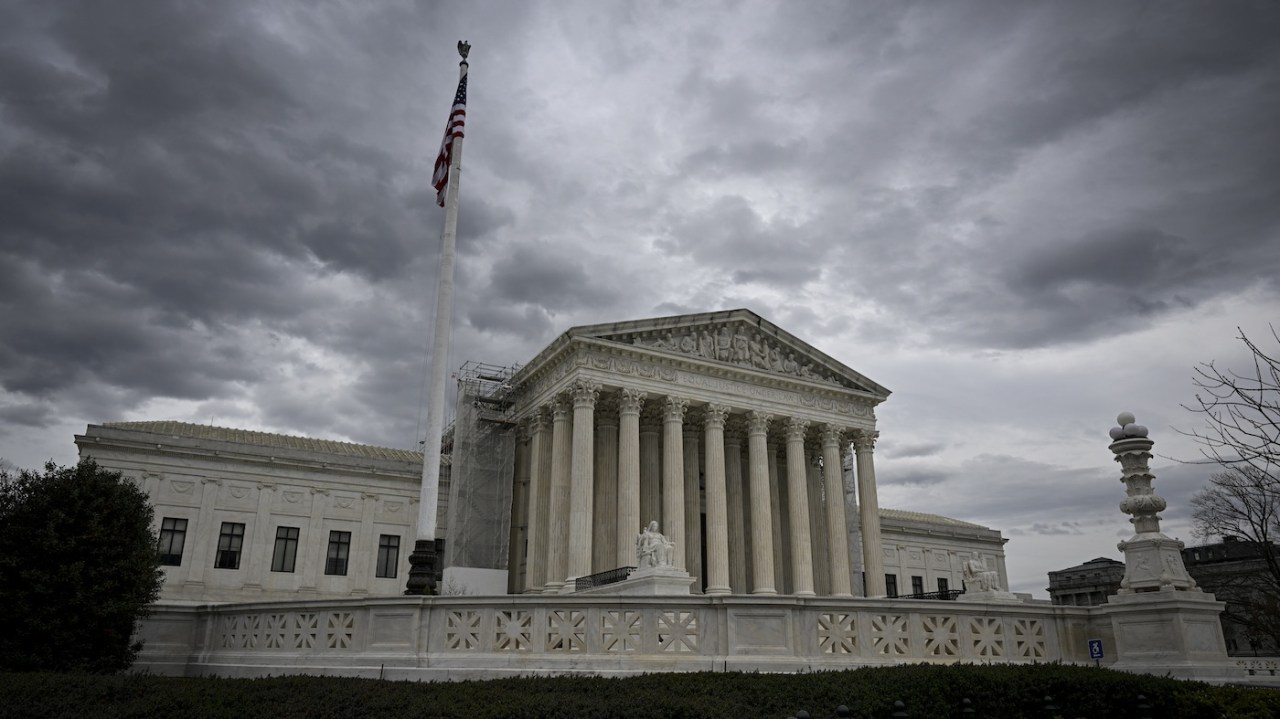Higher taxes on wealthy Americans, corporations could hinder US economy
President Biden has pitched an array of
tax hikes targeting corporations and wealthy Americans, but the steeper levies could weigh on the already-fragile U.S. economy, according to the Tax Foundation.
Findings from the Tax Foundation, a group that advocates for lower taxes, found the higher taxes laid out in
Biden's sweeping budget blueprint for federal spending in fiscal 2025 would reduce economic output by 2.2% in the long run, slash wages by 1.6% and kill about 788,000 full-time equivalent jobs.
The policies outlined in the plan would "make the tax code more complicated, unstable, and anti-growth, while also expanding the amount of spending in the tax code for a variety of policy goals not related to revenue collection," the report said.
As part of the proposal, Biden called for a 25% minimum tax rate on households worth more than $100 million, raising the capital-gains tax rate, quadrupling the corporate stock buyback tax to 4%, raising the corporate tax rate to 28%, increasing the Medicare tax paid by wealthy Americans, implementing a global minimum tax on multinational corporations and closing the carried interest loophole used by private equity and hedge fund managers.
Altogether, the tax increases would reduce the federal deficit by about $3 trillion. Money from the newly generated revenue would also help to pay for expensive new programs floated by the president, including a monthly tax credit to help some homeowners offset steep mortgage payments, subsidies for child care and lower prescription drugs.
In the case of the capital gains tax, the proposed changes would "push the United States beyond international norms," according to the Tax Foundation.
By taxing wealthy Americans' capital gains as ordinary income, Biden would ultimately raise the top tax rate paid on capital gains to 49.9% — the steepest level in the 38-member Organization for Economic Co-operation and Development.
But the Tax Foundation analysis labeled the corporate income tax proposal the "most harmful" to economic growth. The budget proposal would lift the corporate tax rate to 28% from 21%, rolling back a key part of former President Donald Trump's 2017 tax law. The measure also calls for increasing the taxes that U.S. companies owe on their foreign earnings to 21% — nearly double the current 10.5% rate.
Higher taxes on corporations are the "largest driver of the negative" economic effects and alone would trim the nation's GDP by 0.9%, wages by 0.8% and full-time equivalent jobs by 192,000, the study shows.
"Our economic estimates likely understate the effects of the budget since they exclude two novel and highly uncertain yet large tax increases on high earners and multinational corporations, namely a new minimum tax on unrealized capital gains and an undertaxed profits rule (UTPR) consistent with the OECD/G20 global minimum tax model rules," the report said.




 iowawrestlingblog.com
iowawrestlingblog.com